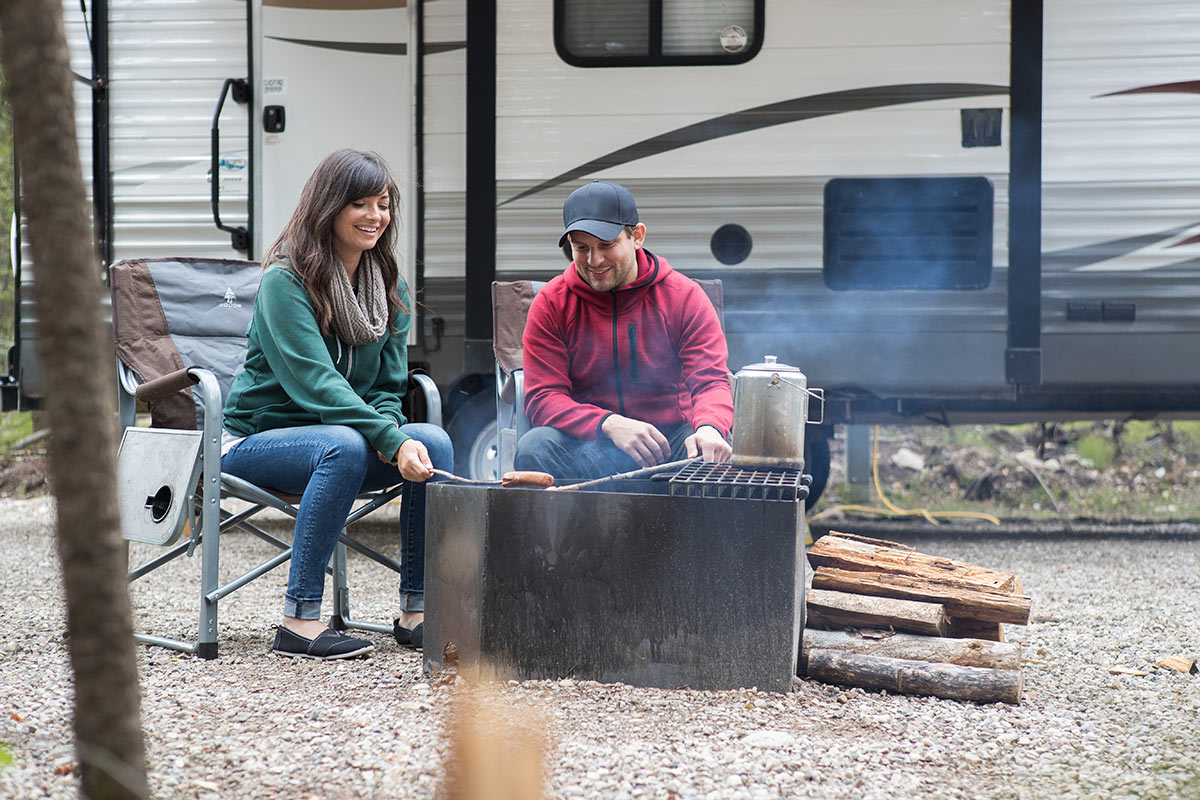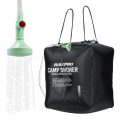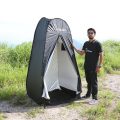Last Updated on August 3, 2022 by Dean Anderson
An RV is a recreational vehicle. The latest statistics reveal about 10 million American households own one.
Americans love RVs and camping. But there are more ways than one to camp in your RV.
Have you ever wondered, “What is dry camping?” You’re not alone!
Check out this guide and discover everything you need to know about dry camping.

What is Dry Camping?
Most people take their RVs to designated camping grounds. The campgrounds provide water, sewer, and electrical hookups.
This way, you’re in a camping environment but you still have all the comforts of home.
Dry camping is a little different. You’re still in your camper but you’re without the electricity, sewer, or water connections. But isn’t it the connections that make an RV so fun?
Yes. But there’s a lot to be said for dry camping.
Why Would We Want to Dry Camp?
If you only go to campgrounds with hookups, you’re limited to certain areas. But if you’re dry camping, you can go wherever you’re allowed to drive and park an RV.
Many campgrounds without hookups and other dry camping locations are free, so it saves money.
If you’re unwilling to dry camp, you might miss out on some social opportunities. Lots of people gather at big events that don’t have hookups, and dry camping is the only option.
Know Your RV
It’s important to know your RV and its limitations. What are your tank capacities?
Take a look at the size for each of the following:
- Fresh-water tank
- Gray water tank
- Black-water tank
- Diesel tank
- Propane tank
The bigger the RV, the bigger the tanks. Everyone uses resources at a different rate. It’s crucial that you understand how quickly you use your resources.
Before your first dry camping trip, do some experimenting. See how long you can go without running out of water or dumping the black-water tank.
Do you have a 40-foot RV with a 90-gallon fresh-water tank? It’s possible two people can go for one week doing one load of laundry, taking limited showers and normal dishwashing.
The best way to experiment is in a campground with hookups. Forego the hookups and start camping. Record how long everything lasts.
If you run out prematurely, the hookups are right there. With a little experimentation, you’ll know your limits and have confidence with how long you can go without hookups.
Electric
When you’re at a campground with hookups, you’ve got access to 12-volt and 120-volt power. This gives you access to appliances like a microwave.
Dry camping is a little rougher with only 12-volt access. You’ll only have the power stored in the RV batteries. Once the batteries run out, you’re out of power.
You won’t have access to your appliances or air-conditioner. But you’ll be able to run the lights, fridge, and water pump.
Conserve energy! Only use lights when necessary and only one at a time. Don’t turn on anything that uses electricity unless absolutely necessary.
Do you love to read? Get a small battery-powered booklight.
If you have room, you can bring a generator. But generators are noisy.
Another great power source is solar panels. The initial investment is high but gets cheaper the longer you use it.
Calculate your electrical needs by looking at all your appliances. Add a cushion for cloudy days and days when you use more electricity. That’ll determine what size solar system you’ll need.
The Elixir of Life
Water is one of the most important elements of life. Sanitation is extremely important but when you’re dry camping, be conservative with water so you can stay out longer.
You can also bring a few extra jugs of water for the fresh-water tank if it gets low. As your fresh-water tank goes down, the gray-water tank goes up.
Capture water from the shower into a plastic dishpan. Instead of wasting that water, use it for flushing the toilet.
Collect leftover water from washing dishes into a dishpan. Dump it outside onto bushes and plants. This keeps water out of your gray-water tank. Always use biodegradable soaps!
Showering fills your gray-water tank and uses a lot of water. Consider investing in a small solar shower. A six-gallon solar shower is enough for a few showers.
Fill it with water from a nearby river or lake. Lay it in the sun for a couple of hours and then hang it from a tree branch for a nice hot shower. This saves water from your fresh-water tank and keeps water out of the gray-water tank.
You can always use water filters in order to make use of water from rivers, streams or lakes.
Black Water
Since the black-water tank is for toilet waste, it doesn’t fill up as fast as the gray-water tank. But once it’s full, find a dump station. Never dump black water anywhere except at a proper dump station.
If you’re looking to stay out for a long time, you could try a cassette or other portable toilet.
You can empty a cassette toilet into any type of toilet. This saves you from the need for an RV dump station.
Liquid Propane System
Lots of RVs have built-in liquid propane (LP) systems. Propane is great for dry camping since it powers your cooktop and fridge. It also heats your water.
If you have two LP tanks, you can dry camp for a couple of months if you use the propane conservatively.
Always fill your tanks before you go dry camping!
Are You Ready to Try Dry Camping?
What is dry camping? Now you know! Dry camping allows for further exploration beyond the limits of the RV campground.
It takes a little preparation but it’s well worth it. Assess your RV.
Experiment a little and see how long you can go without needing a dump station or fresh-water tank refill. Be resourceful and conservative with water and electricity.
Solar is well worth the investment. Once you’re comfortable and knowledgeable about your RV situation, you’re ready for dry camping.
Explore new places and meet up with friends at social events that aren’t at RV sites. You’ll be glad you did!
Ready for more camping advice? Keep reading our blog.

Eight years ago, I took a risk and left a miserable office job to follow a lifestyle career that involved my love for the great outdoors. I’ve taken my love for camping, hiking and travel to the next level by running my small campground with a friend near Portland, Oregon. It’s for way less money but this has truly been a dream come true and the running involves lots of family and friends.
The next evolution of that was to get online and start allcampingstuff.com. At our campground, I spend a lot of time setting up camping equipment for customers and disposing of the garbage products they leave behind. If I can help just a few people with advice on good camping gear, then this website venture will be worth it.
So, if you want to avoid the duds and spend your money wisely you’ve hopefully come to the right place.








